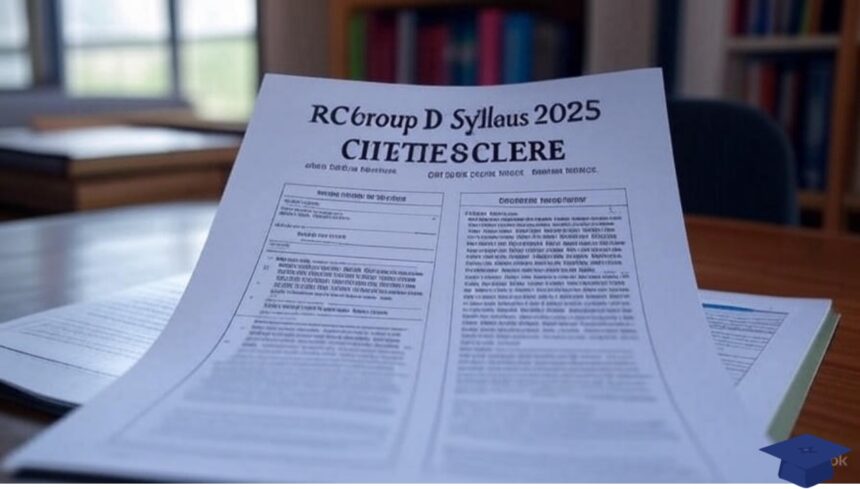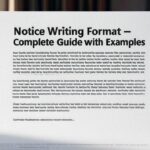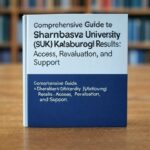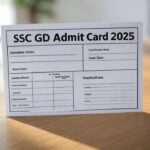The Railway Recruitment Cell (RRC) Group D exam, also referred to as the RRB Group D Level-1 recruitment, is one of the most competitive exams in India. Lakhs of aspirants apply each year for entry-level posts in Indian Railways, making it essential to clearly understand the syllabus, exam pattern, and selection process before beginning preparation.
This guide provides a complete subject-wise RRC Group D syllabus 2025, along with exam pattern, PET details, marking scheme, and preparation strategies to help you crack the exam.
RRC Group D Exam Pattern 2025
The Group D selection process generally consists of the following stages:
- Computer-Based Test (CBT-1)
- CBT-2 (introduced in some recruitment cycles)
- Physical Efficiency Test (PET)
- Document Verification
- Medical Examination
The CBT-1 is the first major hurdle for every aspirant. Here’s the standard exam pattern:
- Total Questions: 100
- Total Marks: 100
- Time Duration: 90 minutes (120 minutes for PwD candidates with scribe)
- Negative Marking: 1/3 mark deduction for each wrong answer
Section-wise distribution
- General Intelligence & Reasoning – 30 questions
- Mathematics – 25 questions
- General Science – 25 questions
- General Awareness & Current Affairs – 20 questions
Subject-Wise Syllabus for RRC Group D 2025
1. Mathematics
The mathematics section checks basic quantitative ability, generally at a Class 10 level. Key topics include:
- Number System, LCM & HCF
- Fractions, Decimals, Ratios & Proportions, Percentages
- Profit & Loss, Simple and Compound Interest
- Time & Work, Pipes & Cisterns
- Time, Speed & Distance, Problems on Trains
- Average, Mixtures & Allegations
- Mensuration (Area, Volume, Perimeter)
- Geometry basics – triangles, circles, polygons
- Algebra – simple equations, polynomials
- Simplification (BODMAS), Square roots & Cube roots
- Elementary Statistics – Mean, Median, Mode, Data Interpretation
- Calendar & Clock problems
2. General Intelligence & Reasoning
Reasoning tests logical thinking and problem-solving skills. Important topics are:
- Analogies, Coding–Decoding, Classification
- Number and Alphabet Series
- Blood Relations, Direction Sense, Order & Ranking
- Syllogism, Statements & Conclusions, Assumptions
- Venn Diagrams, Puzzles, Seating Arrangement
- Input–Output, Data Sufficiency (basic)
- Non-verbal reasoning: figure series, mirror images, paper folding, water images
3. General Science
The science section is based on Class 10-level Physics, Chemistry, and Biology concepts. Candidates should focus on:
- Physics: Motion, Force, Work & Energy, Heat, Electricity basics, Light reflection & refraction
- Chemistry: Matter & properties, Acids & Bases, Everyday chemical reactions, Carbon compounds, Periodic table basics
- Biology: Human body systems, Nutrition, Health & Diseases, Reproduction basics, Plant & Animal kingdom, Ecology & Environment
- Everyday Science: Practical applications in daily life, standard scientific instruments
4. General Awareness & Current Affairs
This section evaluates awareness of current events and static GK. Topics include:
- Indian History, Geography, Polity, and Economy (fundamentals)
- Indian Constitution and Governance
- Budget, Government Schemes & Policies
- Current Affairs (last 6–12 months) – National & International events
- Sports, Awards, Books & Authors, Important Days
- Science & Technology developments
- Indian Railways facts and organization (basic awareness)
CBT-2 (If Applicable)
In certain cycles, RRB conducts a second stage CBT. The structure is similar to CBT-1 but often has more in-depth questions and higher difficulty. Aspirants should always check the official RRB/RRC notification of their zone to confirm if CBT-2 will be held in their cycle.
Physical Efficiency Test (PET) and Physical Standards
Candidates who clear CBT are shortlisted for PET. The requirements differ for male and female candidates:
- Male Candidates: Running a fixed distance (1000–1500 meters) within the specified time, and tasks like lifting/carrying weights.
- Female Candidates: Slightly shorter running distance with adjusted time limits, along with weight carrying tasks.
- PwD candidates: Exempt from PET but must clear medical standards as per rules.
Height, chest measurement (for male candidates), and weight may also be checked under Physical Standards Test (PST). Exact criteria vary by category and region, so always refer to the official notification.
Marking Scheme and Normalization
- Marks per question: 1
- Negative marking: 1/3 for each wrong answer
- Normalization: Since exams are conducted in multiple shifts, RRB applies normalization to ensure fairness. Final cut-offs depend on normalized scores and vacancies.
Preparation Strategy for RRC Group D 2025
Cracking Group D requires systematic preparation. Here’s a practical 12-week study plan:
- Week 1 – Diagnostic Test
Attempt one full-length mock to assess strengths and weaknesses. - Weeks 2–6 – Build Basics
- Maths: Practice percentages, ratios, time-work, speed-distance daily.
- Reasoning: Focus on series, puzzles, coding-decoding, syllogism.
- Science: Revise NCERT Class 9–10 science.
- GK: Start daily current affairs notes.
- Weeks 7–10 – Advanced Practice
- Solve topic-wise test papers and speed drills.
- Revise tricky topics and practice data interpretation.
- Attempt sectional mocks.
- Weeks 11–12 – Final Revision & PET Prep
- Attempt one full mock every 2–3 days.
- Analyze mistakes and reduce negative marking.
- Start PET training – running practice, stamina building, basic strength exercises.
Recommended Books and Resources
- Mathematics & Reasoning: R.S. Aggarwal (Quantitative Aptitude & Reasoning)
- General Knowledge: Lucent’s GK
- Science: NCERT Class 6–10 books for quick revision
- Current Affairs: Monthly magazines and daily updates (Vision IAS, GK Today, etc.)
- Mock Tests: Testbook, Adda247, Embibe, CareerPower platforms
Key Takeaways
- The RRC Group D syllabus 2025 covers Maths, Reasoning, Science, and GK/Current Affairs at a moderate level.
- Selection includes CBT-1, CBT-2 (if applicable), PET, and Medical Exam.
- Proper planning with daily practice, mock tests, and current affairs revision is the key to clearing the exam.
- Always refer to the official RRB notification of your zone for the final syllabus and PET criteria.
✅ With a clear understanding of the syllabus and a disciplined approach, you can maximize your chances of success in the upcoming Railway RRC Group D exam.








